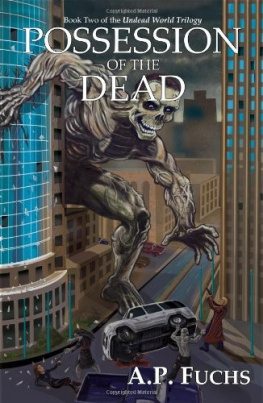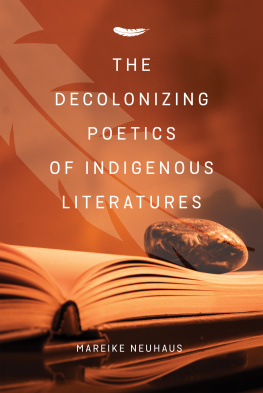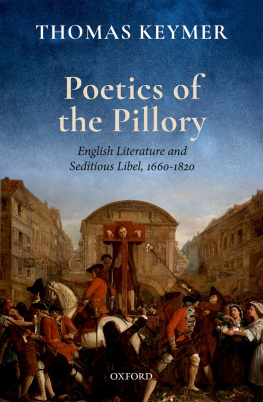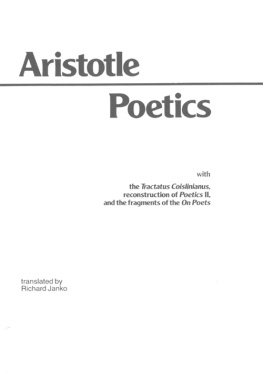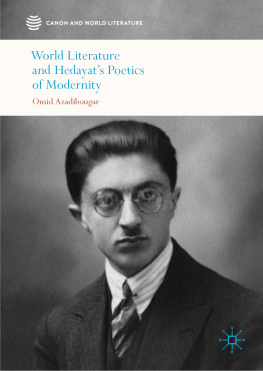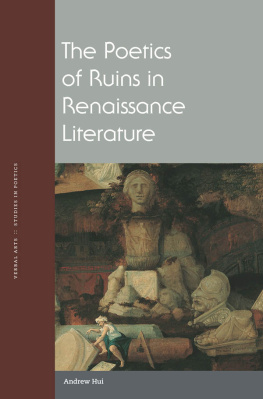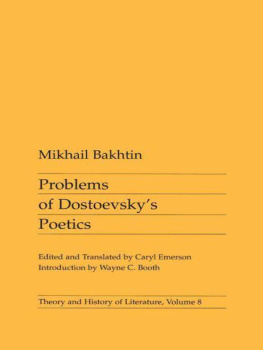Fuchs - The poetics of piracy: emulating Spain in English literature
Here you can read online Fuchs - The poetics of piracy: emulating Spain in English literature full text of the book (entire story) in english for free. Download pdf and epub, get meaning, cover and reviews about this ebook. City: Philadelphia, year: 2013, publisher: University of Pennsylvania Press, Inc., genre: Detective and thriller. Description of the work, (preface) as well as reviews are available. Best literature library LitArk.com created for fans of good reading and offers a wide selection of genres:
Romance novel
Science fiction
Adventure
Detective
Science
History
Home and family
Prose
Art
Politics
Computer
Non-fiction
Religion
Business
Children
Humor
Choose a favorite category and find really read worthwhile books. Enjoy immersion in the world of imagination, feel the emotions of the characters or learn something new for yourself, make an fascinating discovery.

- Book:The poetics of piracy: emulating Spain in English literature
- Author:
- Publisher:University of Pennsylvania Press, Inc.
- Genre:
- Year:2013
- City:Philadelphia
- Rating:3 / 5
- Favourites:Add to favourites
- Your mark:
- 60
- 1
- 2
- 3
- 4
- 5
The poetics of piracy: emulating Spain in English literature: summary, description and annotation
We offer to read an annotation, description, summary or preface (depends on what the author of the book "The poetics of piracy: emulating Spain in English literature" wrote himself). If you haven't found the necessary information about the book — write in the comments, we will try to find it.
Fuchs: author's other books
Who wrote The poetics of piracy: emulating Spain in English literature? Find out the surname, the name of the author of the book and a list of all author's works by series.
The poetics of piracy: emulating Spain in English literature — read online for free the complete book (whole text) full work
Below is the text of the book, divided by pages. System saving the place of the last page read, allows you to conveniently read the book "The poetics of piracy: emulating Spain in English literature" online for free, without having to search again every time where you left off. Put a bookmark, and you can go to the page where you finished reading at any time.
Font size:
Interval:
Bookmark:
The Poetics of Piracy
Emulating Spain in English Literature
Barbara Fuchs

A volume in the Haney Foundation Series, established in 1961 with the generous support of Dr. John Louis Haney.
Copyright 2013 University of Pennsylvania Press
All rights reserved. Except for brief quotations used for purposes of review or scholarly citation, none of this book may be reproduced in any form by any means without written permission from the publisher.
Published by
University of Pennsylvania Press
Philadelphia, Pennsylvania 19104-4112
Printed in the United States of America on acid-free paper
10 9 8 7 6 5 4 3 2 1
Library of Congress Cataloging-in-Publication Data
Fuchs, Barbara, 1970
The poetics of piracy : emulating Spain in English literature / Barbara Fuchs 1st ed.
p. cm. (Haney Foundation series)
ISBN 978-0-8122-4475-5 (hardcover ; alk. paper)
Includes bibliographical references and index
1. English literatureSpanish influences. 2. English literatureEarly modern, 15001700History and criticism. 3. Imitation in literature. I Title. II. Series: Haney Foundation series.
PR129.S7 F83 2013
820.9'35846 | 2012031344 |
For Marshall Brown, who was on the lookout for Spain
The Poetics of Piracy
Imagine for a moment that we found, in some dusty attic, the late, lost play Cardenio by William Shakespeare and John Fletcher, based on the unhinged lover-turned-wild-man in the first part of Don Quijote. Shakespeare scholars would be beside themselves with joy. A flurry of papers, conferences, publications would follow hard upon. But what would the discovery of Cardenio do for the shape of the discipline? Would English studies look any different if we miraculously recovered the lost play?
For scholars of Anglo-Spanish relations, the lost Cardenio looms large. The play is the absent center, the purloined letter, the missing link, the huge gaping O. Exhibit A for the connection between the two foremost representatives of early modern English and Spanish literatureShakespeare and Miguel de Cervanteshas gone missing, leaving in its stead a tantalizing title and the thought of what might have been. The recent surge of interest in this lost play, including several reconstructions both scholarly and theatrical, as well as an edition of its eighteenth-century redaction in the prestigious Arden Shakespeare series, mark it as a crucial missing piece in our conception of early modern English culture. By recovering the Spanish connection that makes sense of Cardenio, this book demonstrates how the plays absent presence has conditioned our understanding of Anglo-Spanish cultural relations in the early modern period and beyond. Beyond charting the lively debates around Cardenios absence, The Poetics of Piracy shows how rich the Spanish vein proved for early modern English writers, and analyzes the occlusion of that debt in their time as in ours.
Early modern English writers turned frequently to Spain for literary models, even at the times of greatest rivalry between the two nations. Spains position as the dominant European power of the period, as well as the huge explosion in Spanish prose and dramatic writing across a wide variety of genres in the sixteenth and early seventeenth centuries made it an irresistible literary source. The frequent English translations from the Spanish, even during the long period of war under Elizabeth, provide evidence of a sustained fascination, from the bawdy Celestina (1499, translated by John Rastell in 1525 and by James Mabbe in 1631), to the picaresque Lazarillo (1554, translated c.1586 by David Rowland, among others), the pastoral Diana, with its interpolated Moorish novella Abencerraje y Jarifa (1559, trans. 1598 by Bartholomew Yong, among others), the romances of chivalry translated by Anthony Munday and Margaret Tyler in the 1580s and 1590s, and the early seventeenth-century translations of Cervantes and Mateo Alemn by Thomas Shelton and Mabbe. A broad variety of signal Spanish texts, many of them chefs-doeuvre for entire European traditions in poetry and prosechivalric, sentimental, and maurophile romance, as well as picaresque, pastoral, and novellathus made their way into English, even as the political situation between the two nations deteriorated in the wake of the Reformation and imperial rivalries. As philologists have long noted, Spanish sources, whether in the original or in intermediary versions, provided material for such central figures as Sidney, Spenser, and Shakespeare,

Figure 1. Gabriel Harveys reading list, from the flyleaf of his copy of Antonio de Corro and John Thorius, The Spanish Grammar (1590). Huntington Library.
Beyond charting his own fascination with Spanish, Harvey admires Spains potency, and the role of language in its imperium: Suo potentior, et gloriosior natio: e florentior, et nobilior Lingua. Cert, vt Monarchia praedominatur: sic tandem Lingua. Et ea Lingua dianissima; cuius Vsus maxim catholicus in genere; aut maxim necessarius in specie [The nation itself {is} Appreciation for the language is closely tied with admiration for Spain itself.
Yet while the English turn to Spain has been periodically notedmost fully in Dale Randalls 1963 classic, The Golden Tapestrytraditional literary history has managed neither wholly to insert Spain into English studies, nor convincingly to explain the ongoing disavowal of Spain in the field. As I argue here, the reason is twofold. First, the English turn to Spain appears paradoxical, given the religious and political enmity between the two nations. Second, and more important, the early modern English rivalry with Spain has largely colored our own cultural and intellectual histories, limiting our view of the Spanish connection. The challenge lies in recognizing that the often vociferous rhetorical denunciation of Spain in the period and beyond did not impede literary traffic. Certainly, the increasing acrimony between the two nations, which came to a head with the attempted invasion by the Spanish Armada in 1588, raised the stakes for the English imitatio of Spain, placing literary transmission in a fundamental tension with religious and political conflicts, never fully resolved even when James declared peace with Spain in 1604. Yet transmission there was, from translation, to reelaboration, to occasional citationall versions of a sustained fascination with Spanish matter. I thus offer in this book a reading of imitatio as a historically situated practice, coterminous with imperial competition and national self-definition.
While the interdependence of empire and culture was a central assumption for humanists charting their own descent from Rome and their role in translatio imperii studiique, scholarship has only begun to grapple with the extent to which a fully contemporary imperial and cultural competition under-girds the complex relations between England and Spain in the early modern period. The work of Richard Helgerson and Roland Greene has illuminated these complex interrelations primarily in terms of imperial rivalry; my aim here is to consider more broadly how Spanish influence is negotiated, and how it makes its way to the English stage.even as it was disavowed. I juxtapose texts on Spain or translated from Spanish sources with early claims for Englands literary eminence, often expressed in a heightened rhetoric of violent competition. My focus is on central figures of the Anglo-Spanish literary exchange, who either took from Spain for their own texts or reflected on the vexed relation to Spain that characterized English letters, particularly on the stage: Ben Jonson, William Shakespeare, Francis Beaumont, John Fletcher, and Thomas Middleton. Together, they paint a complex picture of the literary fascination with Spain, and of how entangled it became in questions of national and religious identity.
Next pageFont size:
Interval:
Bookmark:
Similar books «The poetics of piracy: emulating Spain in English literature»
Look at similar books to The poetics of piracy: emulating Spain in English literature. We have selected literature similar in name and meaning in the hope of providing readers with more options to find new, interesting, not yet read works.
Discussion, reviews of the book The poetics of piracy: emulating Spain in English literature and just readers' own opinions. Leave your comments, write what you think about the work, its meaning or the main characters. Specify what exactly you liked and what you didn't like, and why you think so.

